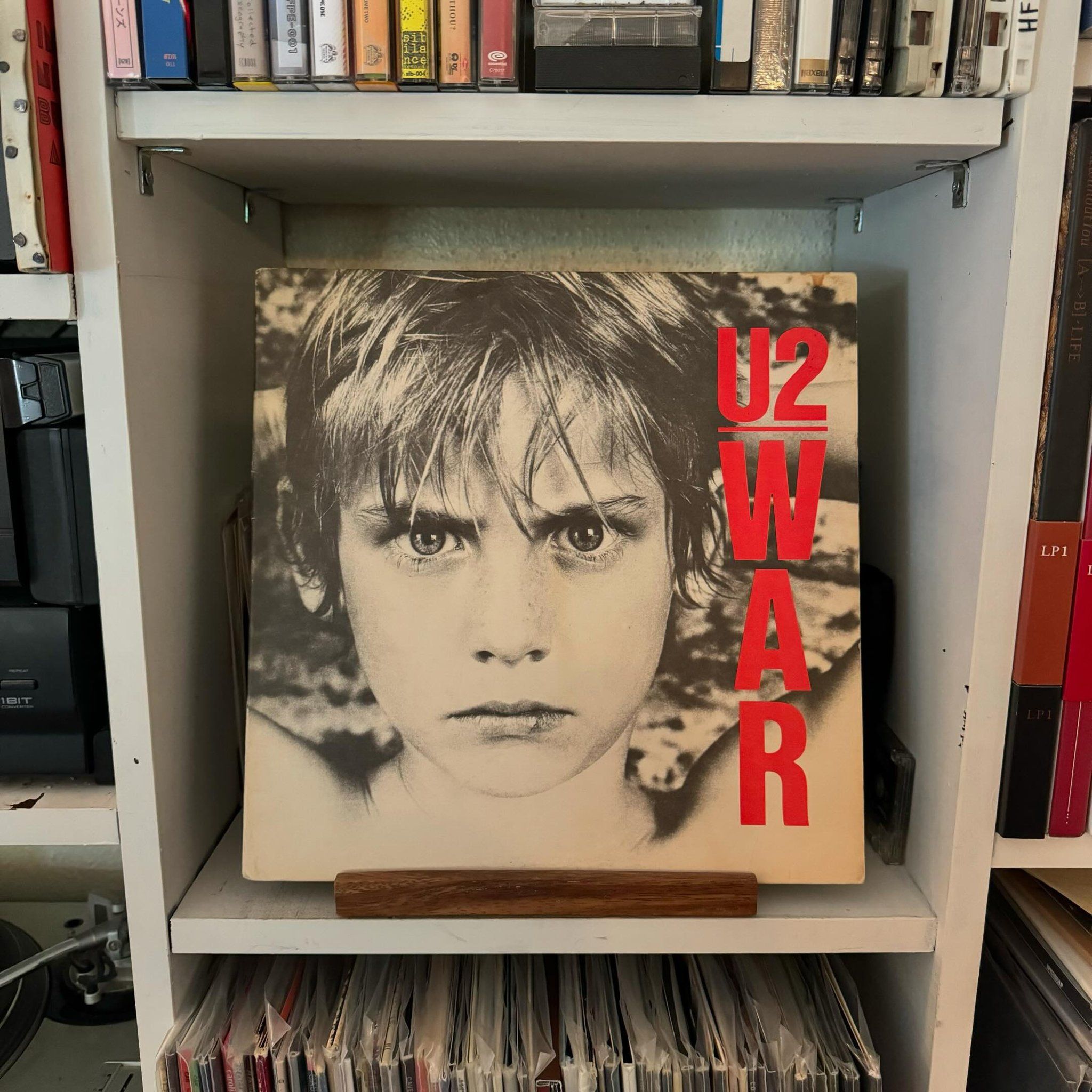
It’s hard to quantify just how big of a record War was.
Up to this point, U2’s brand of anthemic post-punk had brought them modest success, but they were hardly a household name to anyone. War, on the other hand, knocked Thriller off of the top spot on the UK charts.
Thirty-one years later, it remains one of the group’s most definitive and celebrated works, and with good reason. For my own part, it was a chance purchase of this record in a used bin when I first started collecting records that made me a U2 fan in the first place, and it was my favorite of theirs for quite a few years.
War finds the group once more working with producer Steve Lillywhite, and the resulting album is the zenith of their collaboration. The cover art, which once again features Boy cover model Peter Rowan, now older, fiercer, and bloodied. Their third record has all of the urgency of Boy and the plaintive melodicism and spirituality of October, both taken to their maximum intensity and refined into a powerhouse. War features far more studio work, such as a fiery violin solo in “Sunday Bloody Sunday,” additional drum overdubs in the Knack-via-Talking Heads-ish “The Refugee,” the trumpet solo in “Red Light,” and the backup vocals and handclaps in “Surrender.”
Their political consciousness, which was just starting to bloom on October, was now front and center. The punk scene U2 was birthed out of was certainly no stranger to political statements, but the arenas they had started playing gave them a far bigger megaphone than any of their peers. To contextualize just how political it is, “New Year’s Day” was originally started as a love song to Bono’s wife until he heard about the Polish Solidarity Movement and adjusted the lyrics. “Seconds” hides a protest song about nuclear proliferation in a midtempo bop with a toy kick drum. Even poppier songs like the aforementioned “Refugee” addressing immigration policies.
It’s not just their political fluency that increased. War was a giant leap from a musical standpoint to—and not just because Larry Mullens Jr finally agreed to play to a clicktrack (though the fact that he kept in time against Edge’s guitar on “A Day Without Me” without it is incredibly impressive). Their already established brand of jagged post-punk expands in every direction. The aggressive bits are harsher, the quiet moments are more subdued, the rhythmic moments are groovier.
The juxtaposition of “Like a Song…” and “Drowning Man” is an excellent case study. The former is maybe their most aggressive song ever (allegedly written in response to criticism that they weren’t punk enough), forecasting bands like Thursday, while the latter is a hushed plea of desperation driven by brushed drums and guitar harmonics. And of course, there’s the matter of “New Years Day,” wherein The Edge switches between piano and guitar between phrases, which is still impressive to watch. The record then ends with “40,” a gorgeous bass-driven ballad that echoes the chorus of “Sunday Bloody Sunday,” repeating “how long to sing this song?”
I’m not sure there has been as big a punk album as War, and listening to it today, it’s still easy to hear why. Both its political struggle and musical inventiveness are timeless, even in the face of the rest of their catalog. And considering what was to come, the fact that War is still often regarded as a contender for their best record speaks volumes. While it marked the end of U2’s more straightforward post-punk sound, it was the undisputed peak of that era of their career.